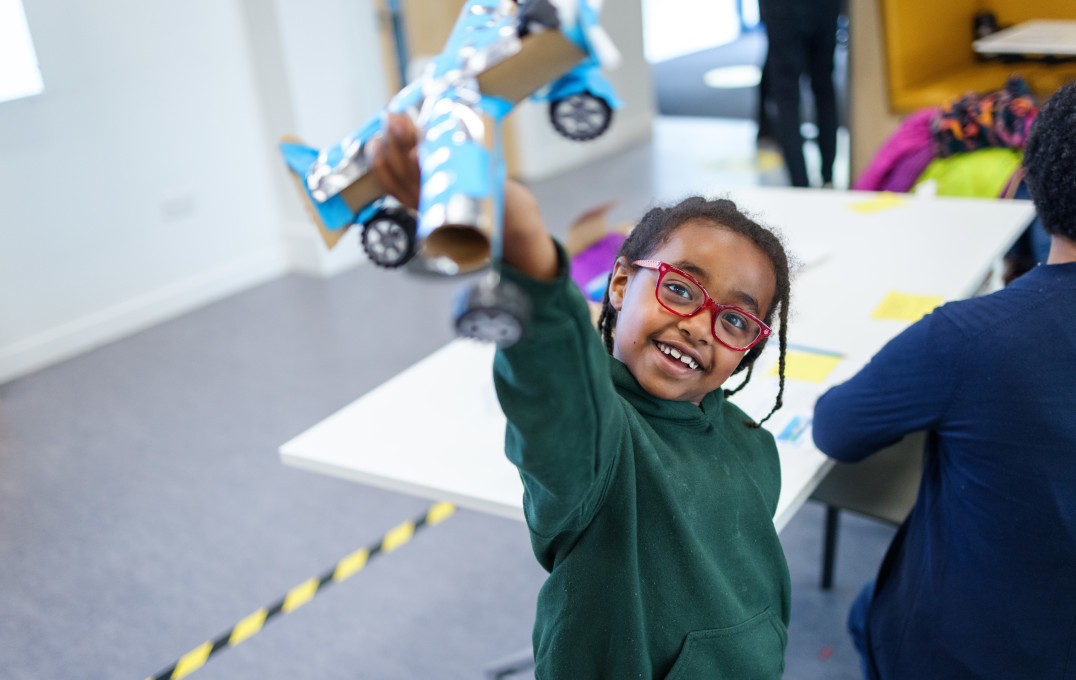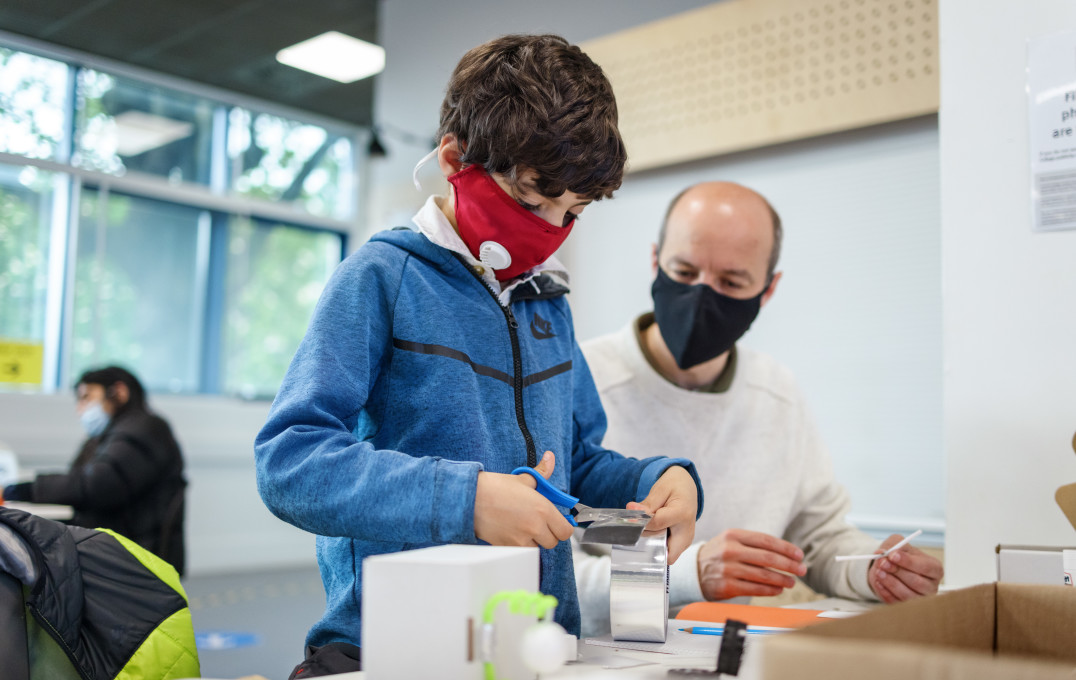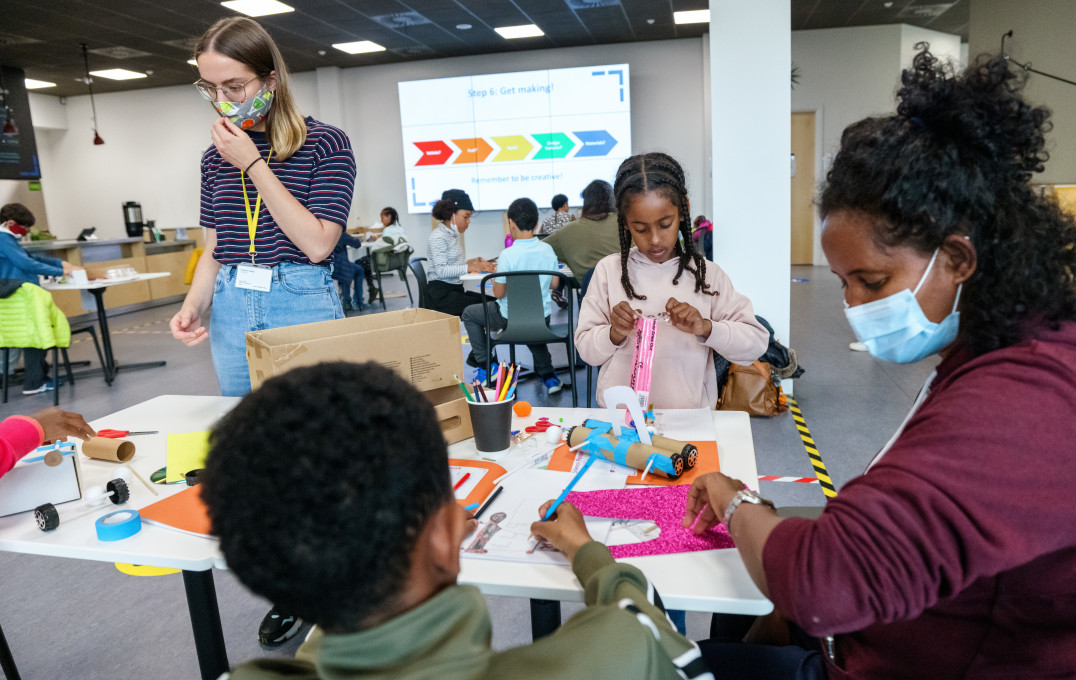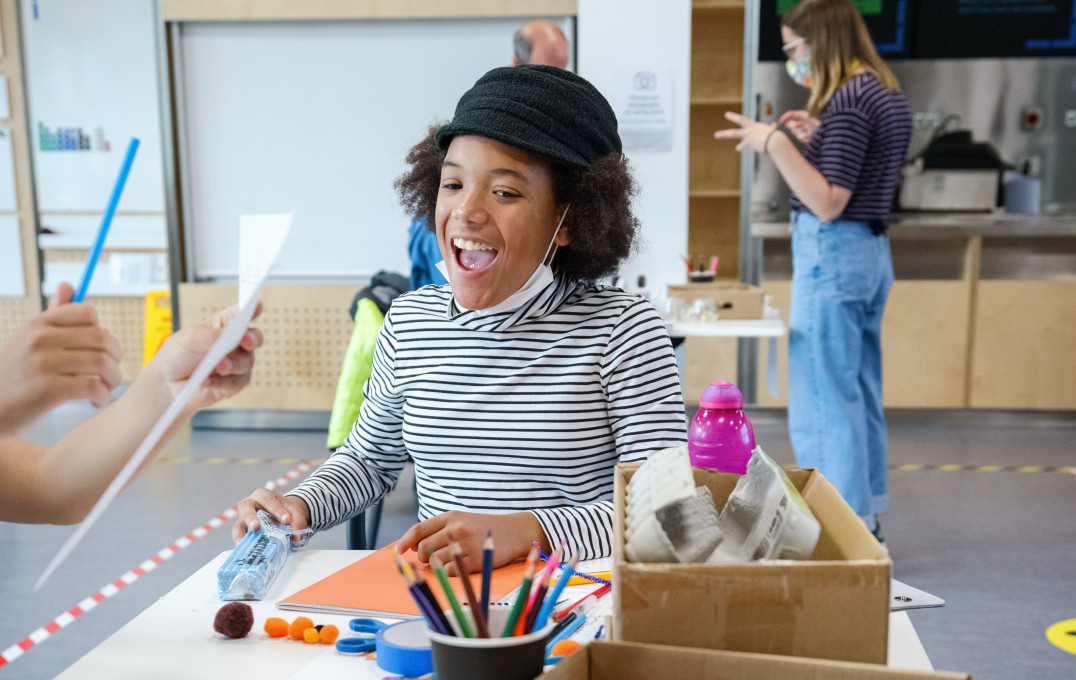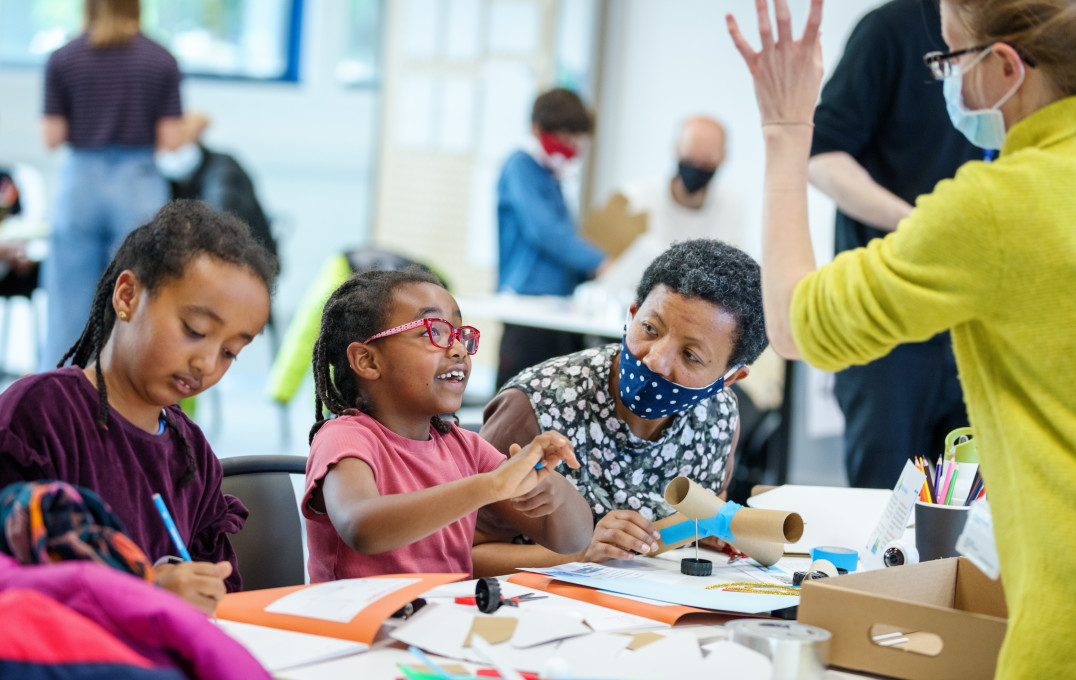Imperial’s new Saturday Science Club inspires families in White City
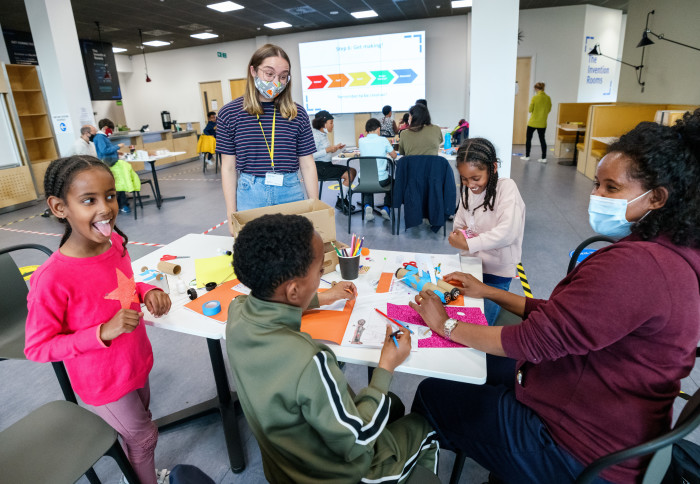
Researchers from across the College have been engaging local families with science in a new format of engagement for Imperial.
Conceived and coordinated by the Public Engagement Programmer and Practitioner for Imperial’s White City campus, Andrew Brooks, the Saturday Science Clubs engaged local families each Saturday over six weeks. The same families returned each week to build on their learning through playful science-themed activities led by an Imperial scientist.
“Engaging with families is really rewarding,” says Andrew. “You can provide great experiences that a family will remember for a long time and you can help them meet their needs to do something positive as a family.”
The Public Engagement team have been excited to try out this longer-term form of engagement. By working with the same families each week, the team have been able to build “really strong bonds with our local community and conduct some great in-depth, high-quality engagement,” says Andrew.
Sessions were designed to inspire and enthrall with each week covering a different scientific topic ranging from chemistry - explored through the medium of bath bombs - to cutting edge nanotechnology explored using Lego!
Greener travel
How can we make our vehicles greener? Families were invited to put their creativity and resourcefulness to the test in this session exploring the decarbonisation of transport.
Participants were invited to use their imagination to design and make a vehicle of their choice that not only ran on ‘clean’ energy but was built using household waste. The session emphasised the multidisciplinary approach required to develop sustainable solutions to climate change.
Researcher Louise Oldham, who presented her work in this session, enjoyed the opportunity to share her passion for science. "It was useful to learn how to explain my research in a different context and with a different audience, and it made me more aware of the importance of understanding where my research fits.”
“I am a science researcher and I love science and I want to share that with kids and inspire that in them.”
Can we trust what we see?
Researcher Sadra Sadeh joined the families to explore how the brain enables us to see in 3D, computing information from the eyes. The session explored the idea that it is our vision that defines how we experience to world, despite the fact that our 3D vision is an illusion our brain computes in our head. If what we see isn’t really real, can we trust our senses?
The families investigated optical illusions before creating their own 3D glasses and even testing them out by watching a short 3D film.
Bath time science
Fizzing with fun and chemistry, the bath bombs workshop showed children and parents how science can enhance bath time. Chemical Biology PhD student Helena Dodd offered families an early glimpse into the excitement of chemical reactions in daily life. Families were given recipes, ingredients and step-by-step guidance to create their own coloured, perfumed bath bombs to take home.
The wonder of plants
Plant science is vital in every area of our lives, from food to medicine, and this session offered a chance to explore the amazing diversity of plant life with plant scientist and Teaching Fellow Catherine Mansfield. From local London flora to fearsome carnivores, children, parents and carers had an opportunity to examine a variety of plants using printing techniques to create artwork The families even got to take home their very own Venus flytrap to care for.
The tiny but mighty world of nanotechnology
This session on design, coding and technology, led by Imperial physicist Jess Wade, focussed on the creative skills needed by scientists. It was also a celebration of Jess’ new book - Nano: The Spectacular Science of the Very (Very) Small - with each family taking home a signed copy.
In the session, families first explored the nano scale, before designing Lego nano robots that might be used for health/medicine. As they built the robots, families were encouraged to think about what a nano health robot might be able to do (check blood sugar, send alerts to the body) and then built this out of Lego, and coded accordingly. Participants then took their robots to a giant cell (made of plasticine on a table) where they tried out their robots to see what worked.
The Saturday Science Clubs finished with a session that looked back on everything the families had learned, creating posters in the process. Would you like to know more about inspiring families with science? Imperial’s public engagement team have put together a handy resource as part of their Engagement Toolkit to help you engage every generation with your work. Find out how to plan and deliver insightful workshops with maximum impact for families here.
Photography by Brendan Foster
Article text (excluding photos or graphics) © Imperial College London.
Photos and graphics subject to third party copyright used with permission or © Imperial College London.
Reporter
Sarah Webb
Office of the Provost
Ellie Cawthera
Communications Division
